
Overview
Agricultural analysis focuses on understanding the nutritional needs of crops and plants to ensure optimal growth, yield, and quality. It involves studying factors such as soil fertility, nutrient availability, pH levels, and other chemical properties of the soil. By analyzing these factors, farmers and agronomists can make informed decisions about fertilization, irrigation, and crop rotation, leading to improved crop yields and resource efficiency. Soil analysis involves a comprehensive examination of soil properties, composition, and health. This process includes assessing physical properties like texture, structure, and moisture retention, as well as chemical properties such as nutrient content, pH, and presence of contaminants. Soil analysis helps to determine the overall health of the soil, its capacity to support plant growth, and any corrective actions needed to improve its condition. It also aids in identifying potential issues like soil erosion, compaction, or pollution.
Depending on specific features and functions, GAO Tek’s pH meters are sometimes referred to as pH Testers, pH Monitors, pH Sensor, pH Probe, pH Analyzer, pH Gauge, pH Indicator, pH Measuring Device, pH Readers, pH Instruments, pH Detector, pH Checker, pH Tester Device, pH Measurement Tool, pH Reader Equipment.
GAO Tek’s pH meters have the following applications in agricultural and soil analysis:
- Soil pH Determination: Measuring soil pH is one of the fundamental applications of pH meters in agriculture. Different crops thrive in specific pH ranges, and soil pH affects nutrient availability to plants. pH meters help determine whether the soil is acidic, neutral, or alkaline, allowing farmers and agronomists to adjust soil amendments and fertilization strategies to create an optimal pH environment for the crops being grown.
- Nutrient Availability Assessment: Soil pH directly impacts the availability of nutrients to plants. Some nutrients become less available or even toxic to plants in soils with extreme pH levels. pH meters are used to assess the pH-dependent availability of essential nutrients like nitrogen, phosphorus, and potassium. This information guides nutrient management decisions to ensure plants receive the appropriate nutrients for healthy growth.
- Lime and Fertilizer Application: Based on soil pH measurements, pH meters help farmers determine the need for lime application to adjust soil acidity or alkalinity. Lime can help raise pH levels in acidic soils. pH meters also guide the precise application of fertilizers, as certain fertilizers work best in specific pH conditions. This approach enhances fertilizer efficiency and minimizes nutrient wastage.
- Crop Suitability and Rotation Planning: Different crops have varying pH preferences. pH meters aid in evaluating whether the current soil pH is suitable for a particular crop. If the pH is not within the desired range, farmers can consider crop rotation strategies that are compatible with the existing soil conditions.
- Monitoring Soil Health and Changes: Regular pH measurements over time can provide insights into changes in soil health and conditions. pH fluctuations might indicate factors like soil degradation, pollution, or excessive nutrient application. Monitoring pH helps identify potential issues early and supports timely corrective actions.
- Irrigation Management: Soil pH influences water retention and drainage properties. pH meters can help determine how well a soil retains water and whether it’s prone to compaction or poor drainage. This information is crucial for effective irrigation management, ensuring that plants receive the right amount of water without waterlogging.
- Environmental Impact Assessment: pH measurements are used in soil analysis to assess the impact of agricultural practices on the environment. Excessive use of certain fertilizers or chemicals can alter soil pH and affect surrounding ecosystems. pH measurements contribute to understanding these effects and making environmentally responsible choices.
More information on pH meters and their applications in other industries can be found on this page Water pH Meters.
This category page lists related products on this page Chemical & Life Sciences.
GAO Tek’s targeted markets are North America, particularly the U.S., Canada, Mexico, and Europe. Hence, in addition to English, this website gaotek.com is offered in other major languages of North America and Europe such as Spanish, French, German, Italian, Polish, Ukrainian, Romanian, Russian, Dutch, Turkish, Greek, Hungarian, Swedish, Czech, Portuguese, Serbian, Bulgarian, Croatian, Danish, Finnish, Norwegian, Slovak, Catalan, Lithuanian, Bosnian, Galician, Slovene, Latvian, Estonian, Welsh, Icelandic, and Irish.
Complying with Industry Standards
GAO Tek’s pH meters comply or help our customers comply with the industry standards such as:
- ISO 10390:2005
- ASTM D4972-01(2015)
- ASTM E691-20
- ISO 11465:1993
- ISO 14225:2010
- ASTM D1293-12
- ISO 10381-6:1998
- ISO 10381-5:1998
- AOAC 947.05
- AOAC 981.12
Complying with Government Regulations
GAO Tek’s pH meters comply or help our customers comply with the U.S. government regulations such as:
- Clean Water Act (CWA)
- Safe Drinking Water Act (SDWA)
- Nutrient Management Regulations
- State Environmental Regulations
- State Agricultural Extension Services
- State Water Resource Management Agencies
- National Organic Program (NOP) Standards
- Soil Conservation and Erosion Control Regulations
- State Pesticide and Fertilizer Regulations
- Laboratory Quality Standards
GAO Tek’s pH meters comply or help our customers comply with the Canadian government regulations such as :
- Canada’s Food and Drug Regulations
- Canadian Environmental Protection Act (CEPA)
- Canadian Food Inspection Agency (CFIA)
- Canadian Soil Information System (CanSIS)
- Provincial Agricultural and Environmental Regulations
- Provincial Environmental Protection Agencies
GAO Tek’s pH meters comply or help our customers comply with the Mexican government regulations such as :
- Mexican Official Standards (Normas Oficiales Mexicanas – NOMs)
- Desarrollo Rural (SADER)
- Comisión Nacional del Agua (CONAGUA)
- Comisión Nacional Forestal (CONAFOR)
- Secretaría de Medio Ambiente y Recursos Naturales (SEMARNAT)
- Laboratory Quality Standards
- Mexican Agricultural Extension Services
- National Institute of Ecology and Climate Change (INECC)
GAO Tek’s pH meters comply or help our customers comply with the European government regulations such as :
- European Union Common Agricultural Policy (CAP)
- European Food Safety Authority (EFSA)
- European Environment Agency (EEA)
- Water Framework Directive (WFD)
- EU Soil Thematic Strategy
- European Committee for Standardization (CEN)
- European Laboratory Accreditation Cooperation (EUROLAB)
- National Agricultural and Environmental Regulations
Case Studies of pH meters in Agricultural and Soil Analysis
pH meters are sometimes called pH Testers, pH Monitors, pH Sensor, pH Probe, pH Analyzer, pH Gauge, pH Indicator, pH Measuring Device, pH Reader, pH Instrument, pH Detector, pH Checker, pH Tester Device, pH Measurement Tool, pH Reader Equipment.
Here are some practical examples of using pH meters in agricultural and soil analysis:
Researchers and farmers in Maine might conduct studies to determine the optimal pH range for blueberry cultivation in acidic soils. They would use pH meters to assess soil pH levels and adjust soil amendments accordingly.
Vineyards in New York face challenges related to soil pH impacting grape quality. Case studies might explore how pH meter measurements guide the application of lime or other amendments to maintain suitable pH levels for grapevine health and wine production.
Cornell Cooperative Extension might conduct case studies in Vermont to evaluate soil health and nutrient availability using pH meters. This could involve assessing the impact of different agricultural practices on soil pH and overall soil health.
Organic farms in New Hampshire might implement pH-focused case studies to evaluate the effectiveness of organic amendments on soil pH regulation and nutrient availability in the absence of synthetic fertilizers.
Potato farming requires specific pH conditions for optimal yield and disease resistance. Case studies could explore how pH meter-guided practices affect potato production in the Northeast.
Researchers might use pH meters to assess soil acidity in forests and woodlands. Case studies could examine the effects of acid rain on forest soils and ecosystem health.
Wetland restoration projects often involve soil analysis, including pH measurement. Case studies could focus on pH changes in restored wetlands and their impact on plant growth and water quality.
Connecticut farmers might collaborate with researchers to study the relationship between soil pH and nutrient availability. These studies could guide precise nutrient application for sustainable crop production.
Researchers might conduct case studies to evaluate how pH levels affect the productivity of corn and soybean rotations in Iowa’s agricultural landscapes. This could involve monitoring soil pH changes over time and their impact on crop yields.
Michigan’s blueberry industry relies on acidic soils. Case studies could investigate pH changes in blueberry fields over years of cultivation and assess whether soil acidification affects plant health and yield.
Organic farms in Illinois might use pH meters to monitor and manage soil pH in the absence of conventional fertilizers. Case studies could explore how pH influences nutrient availability and crop performance in organic systems.
pH plays a role in nutrient uptake for wheat. Case studies could examine how pH meter-guided amendments impact wheat yield, protein content, and overall grain quality.
pH levels can influence disease susceptibility in apple orchards. Case studies might focus on how maintaining optimal pH through soil amendments contributes to integrated pest management strategies.
Researchers and farmers might collaborate on case studies to assess how sustainable practices, like cover cropping and reduced tillage, affect soil pH and overall soil health.
pH is crucial for grapevine health and wine quality. Case studies could explore how pH measurements guide vineyard management practices, including lime applications, in Missouri’s vineyards.
Ohio’s farmers might conduct case studies on the effects of different crop residue management techniques on soil pH and nutrient cycling, with implications for long-term soil health.
GAO RFID Inc. GAO RFID, a sister company of GAO Tek Inc., is ranked as a top 10 RFID suppliers in the world. Its RFID, BLE, and IoT products have also been widely used in environmental monitoring.
Use of pH Meters with Leading Software and Cloud Services in Agricultural And Soil Analysis
GAO Tek has used or has facilitated its customers to use GAO’s pH meters with some of the leading software and cloud services in their applications. Examples of such leading software and cloud services include:
- Data Logging and Analysis Software
- GIS and Mapping Software
- Statistical Analysis Software
- Soil Health Management Software
- Laboratory Information Management Systems (LIMS)
- Agricultural Decision Support Software
- Farm Management Software
- Environmental Monitoring Software
- Spreadsheet Software
- Statistical Analysis Software
- Graphing and Visualization Software
- Geographic Information System (GIS) Software
- Environmental Data Management Software
- Laboratory Information Management Systems (LIMS)
- Data Logging and Analysis Software
- Agricultural Decision Support Software
GAO Tek’s pH meters and their applications in other industries are listed on this page Water pH Meters.
Other related products can be found at this category page Chemical & Life Sciences.
Meeting Customers’ Demands
Large Choice of Products
In order to satisfy the diversified needs of their corporate customers, GAO Tek Inc. and its sister company GAO RFID Inc. together offer a wide choice of testing and measurement devices, network products, RFID, BLE, IoT, and drones.
Fast Delivery
To shorten the delivery to our customers, GAO has maintained a large stock of its products and is able to ship overnight within the continental U.S. and Canada, and fast delivery to Mexico and Europe from the nearest warehouse.
Local to Our Customers
We are located in both the U.S. and Canada. We travel to customers’ premises if necessary. Hence, we provide very strong local support to our customers in North America, particularly the U.S., Canada and Mexico, and Europe. Furthermore, we have built partnerships with some integrators, consulting firms, and other service providers in different cities to further strengthen our services. Here are some of the service providers in environmental monitoring we have worked with to serve our joint customers:
- Ag Leader Technology
- Trimble Agriculture
- The Climate Corporation (Bayer):
- John Deer
- Granular (Corteva Agriscience)
- Raven Industries
- Iteris Ag and Weather Analytics
- SST Software (Proagrica)
- Agrible (Nutrien)
- Farmers Business Network (FBN)
- PrecisionHawk
- A&L Laboratories
- AgIntegrated
- AgGateway
- Ag Data Management Solutions (AgDMS)
- AgView FS
- Agri-Tech Consulting
- EarthSense
- Premier Crop Systems
- The Context Network
- Vantage Prairie Inc.
- Bennett Consulting
- AgInnovation
- TechAccel
GAO Has Many Customers in Agricultural and Soil Analysis
The products from both GAO Tek Inc. and GAO RFID Inc. have been widely used in environmental monitoring by many customers, including some leading companies. Here is more information on applications of GAO RFID Inc.’s products in environmental monitoring.
Agriculture, Forestry & Fisheries | RFID Solutions
Here are some of GAO’s customers in agricultural and soil analysis:
- Waypoint Analytical, Inc.
- Agro-One Soil Laboratory
- UAP Analytical Services
- Lancaster Laboratories
- Woods End Laboratories
- Agri Analysis, Inc.
- Maine Soil Testing Service
- A&L Eastern Laboratories
- AgSource Northeast
- Agronomic Consulting Services
- A&L Great Lakes Laboratories
- Ward Laboratories, Inc.
- AgSource Laboratories
- Midwest Laboratories
- Brookside Laboratories, Inc.
- SGS North America
- Perry Agricultural Laboratory
- Agronomy Services, Inc.
- AgVise Laboratories
- Precision Laboratories
- A&L Canada Laboratories Inc.
- Eastern Analytical Ltd.
- Saskatchewan Research Council (SRC)
- Bio-Ag Consultants & Distributors Inc.

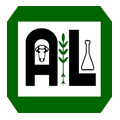
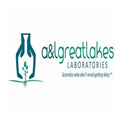
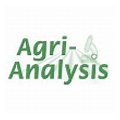
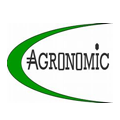
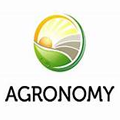

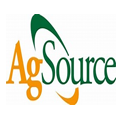
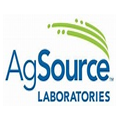
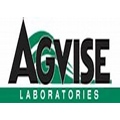
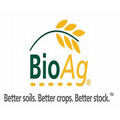

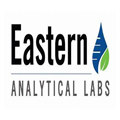

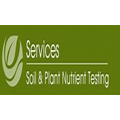
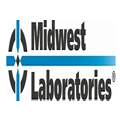
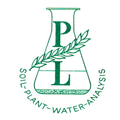




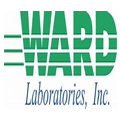

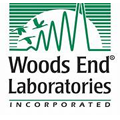
Contact Us
If you are interested in our products, services or partnering with us, please feel free to contact us by filling out this form:
or email us at sales@gaotek.com
